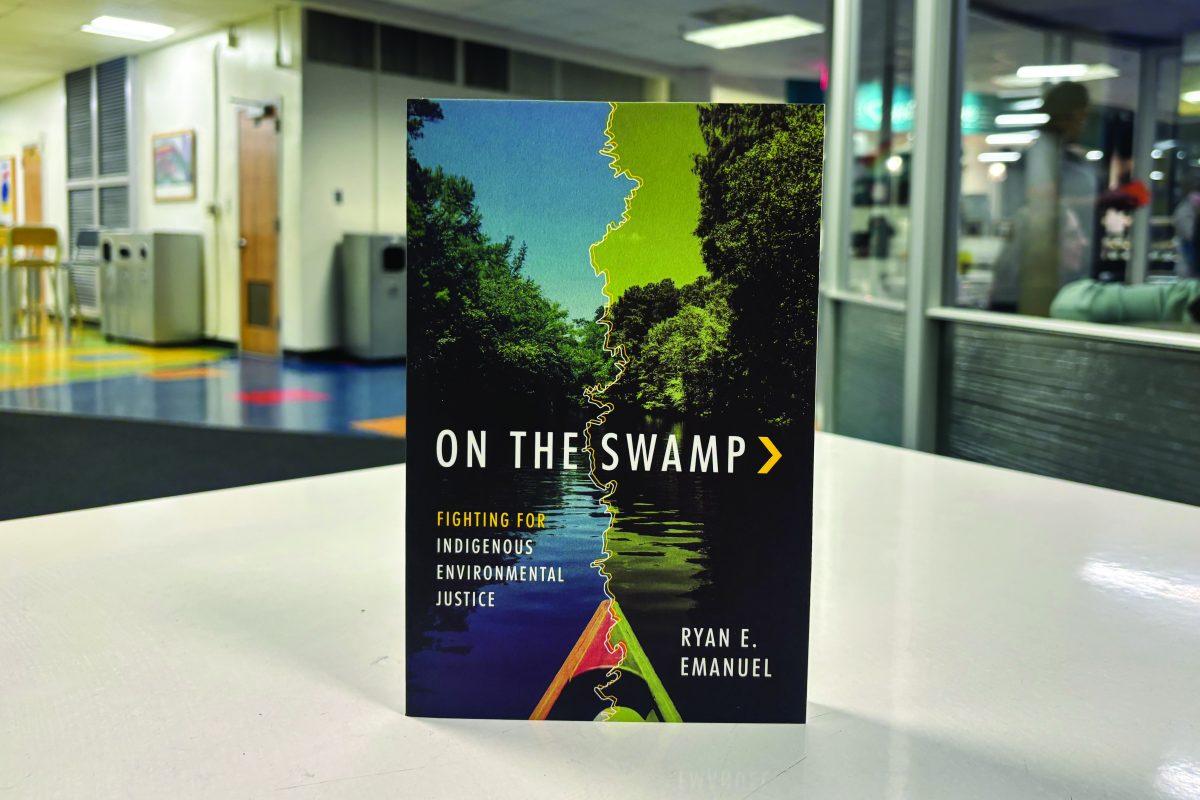NC State University Libraries hosted Ryan Emanuel, an associate professor of hydrology at Duke University, to discuss his new book “On the Swamp: Fighting for Indigenous Environmental Justice” on Monday.
Emanuel’s book is a unique collection of interdisciplinary work. He weaves a narrative bridge between his quantitative academic background in hydrology and the sacredness and respect with which his Indigenous community values water.
Traci Brynne Voyles, a professor and head of NC State’s Department of History, interviewed Emanuel about the vision and research behind his new book. Her perspective as a historian allowed for further exploration of the book’s interdisciplinary nature, which enlightens the inherent relationship between environmental justice and the history of the Lumbee community.
“I wanted to lay out the natural history and human history of this specific place, stopping to dwell on some of the moments that have been especially impactful to the formation of the broader Lumbee community and to other Indigenous communities in the eastern part of what’s now North Carolina,” Emanuel said.
The book developed from a paper that Emanuel wrote for a conference at the American Society of Ethnohistory. He shared that the process of developing the paper included regular consultations at the dinner table with his grandmother, emphasizing the value he placed on including his community’s voice in his work.
“My job is to make sure that the perspectives, concerns and values of the communities that I’m accountable to are firmly placed within the conversation,” Emanuel said.
This essential component in research and policymaking is often ignored.
The lack of inclusion and recognition by agencies on both the state and federal levels is an ongoing problem directly constraining the ability of the Lumbee Tribe and other Indigenous communities to engage in decision-making processes, according to Emmanuel.
“There’s not been any engagement when it comes to environmental policies or environmental permitting,” Emanuel said. “It impacts the way that that sovereignty can be wielded effectively in decision-making spaces.”
Emanuel’s book provides a multifaceted lens through which outsiders find themselves at the intersection of history, culture, natural sciences and community. It sparks the beginning of a lifelong pursuit to learn to shift the framework with which we view the environment and how we can actively participate in uplifting the voices of Indigenous communities.
The event drew a diverse crowd, with information catered to everyone from retired professors to students freshly beginning their studies. Nora Pierce, a first-year studying environmental science, said she was drawn to the presentation because of the unique perspective that Emanuel’s work provides.
“I thought it was really interesting how he’s able to combine his perspective as an Indigenous person and include his background into his scientific pursuits,” Pierce said.
Interdisciplinary presentations can also broaden the scope of what students and researchers think is possible in their realm of study.
“These presentations give students an idea of the insane range of jobs that people have and things that you can study,” Pierce said. “They can pique your curiosity, even if it’s something you’ve never heard about before.”
Going forward, Emanuel hopes to use his role as an educator to promote knowledge and conversation about the intersection between Indigenous communities and environmental justice.
He highlighted this sentiment by reflecting on a vignette at the end of the novel, which details how he has begun to work with students and post-doctoral researchers.
“It’s time to start turning over this work to the next generation,” Emanuel said. “They represent so many different disciplines, not just hydrology, but education, history, policy, data and governance. Those are all tools and skills that we need to move towards a just world.”
If you’re interested in a culturally moving and scholarly read, Emanuel’s book “On the Swamp: Fighting for Indigenous Environmental Justice” is available now to be purchased.














